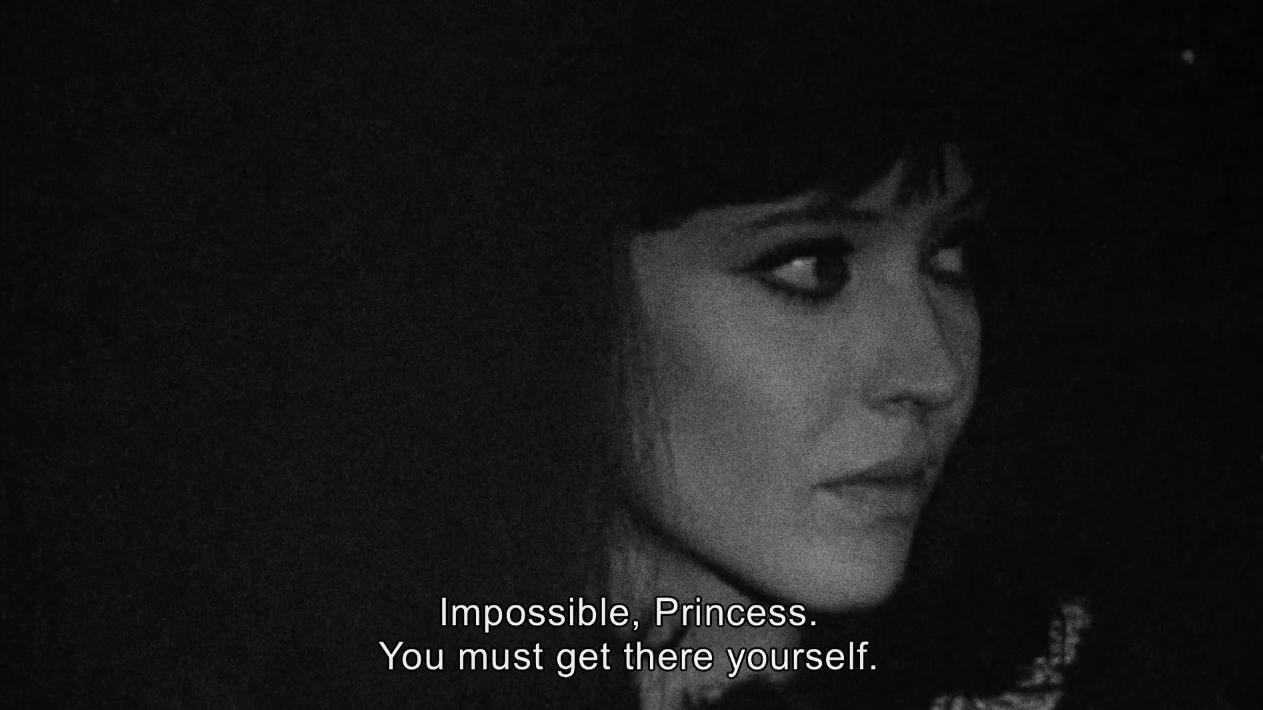Every Day Words Disappear
TITLE
Every Day Words Disappear
DIRECTOR
Johan Grimonprez
COUNTRY
Belgium
YEAR
2016
DURATION
15′
GENRE
Video Art
Overview

Every Day Words Disappear
In 1515 Machiavelli stated that it would be better for the Prince to be feared, than loved. Some 500 years later, Michael Hardt, political philosopher and co-author of Empire, Multitude and Commonwealth, asks what it would mean to base a political system on love, rather than on fear. How can we transform a society that is increasingly defined by a permanent state of war and cultivated by an industry of fear? How can we realize the paradigm shift necessary to move away from a reality that depends on the exploitation of people and the cult of privatising public resources? Hardt looks for an answer in what he calls 'the commons’, by which he refers not only to natural resources, but also to the languages we create- and the relationships we conceive together. In the dystopian city-state Alphaville, of Godard's eponymous film, all words and concepts relating to the idea of love and affection have been banned. When actress Anna Karina tries to express her feelings, she has to reinvent the words, for the concept of love is foreign to her. Like the protagonist in Alphaville, Hardt suggests that we need to redefine the tools to act politically together. Hardt embarks on a journey to identify the transformative powers of the ongoing struggle to re-invent democracy. Within this struggle he understands 'the commons' as an antidote against a society run by fear; an inspiration for a paradigm that is based on dialogue and cooperation.
DIRECTOR BIOGRAPHY - Johan Grimonprez
Johan Grimonprez (1962, Roeselaere, Belgium) is a renowned filmmaker and artist. His critically acclaimed work dances on the borders of practice and theory, art and cinema, documentary and fiction, demanding a double take on the part of the viewer. Informed by an archeology of present-day media, his work seeks out the tension between the intimate and the bigger picture of globalization. It questions our contemporary sublime, one framed by a fear industry that has infected political and social dialogue. By suggesting new narratives through which to tell a story, his work emphasizes a multiplicity of histories and realties. Using documentary material, found footage, historical items from archives, his own home videos, news pictures, advertising, video clips and excerpts from Hollywood films, Grimonprez tries in his own way to give some meaning to the havoc wreaked by History. His films “speak to the need to see history at a distance, but at the same time to speak from inside it”. Other themes include the relationship between the individual and the mainstream image, the notion of zapping as “an extreme form of poetry”, and the questioning of our consensus reality, which Grimonprez defines as: “a reality that is entangled with the stories we tell ourselves in the worldview we agree on sharing.”
Credits
- DirectorJohan Grimonprez
- Screenplay
- Cinematography
- Cast
- Editing
- Producer/s
- Production Company
- Distributor/s
- Project TitleEvery Day Words Disappear
- Project TypeVideo Art
- Completion Date2016
- Country of originBelgium
- Country of filmingBelgium
- Language
- First-time Filmmaker No
- Student ProjectNo
Johan Grimonprez
Johan Grimonprez (1962, Roeselaere, Belgium) is a renowned filmmaker and artist. His critically acclaimed work dances on the borders of practice and theory, art and cinema, documentary and fiction, demanding a double take on the part of the viewer. Informed by an archeology of present-day media, his work seeks out the tension between the intimate and the bigger picture of globalization. It questions our contemporary sublime, one framed by a fear industry that has infected political and social dialogue. By suggesting new narratives through which to tell a story, his work emphasizes a multiplicity of histories and realties. Using documentary material, found footage, historical items from archives, his own home videos, news pictures, advertising, video clips and excerpts from Hollywood films, Grimonprez tries in his own way to give some meaning to the havoc wreaked by History. His films “speak to the need to see history at a distance, but at the same time to speak from inside it”. Other themes include the relationship between the individual and the mainstream image, the notion of zapping as “an extreme form of poetry”, and the questioning of our consensus reality, which Grimonprez defines as: “a reality that is entangled with the stories we tell ourselves in the worldview we agree on sharing.”




